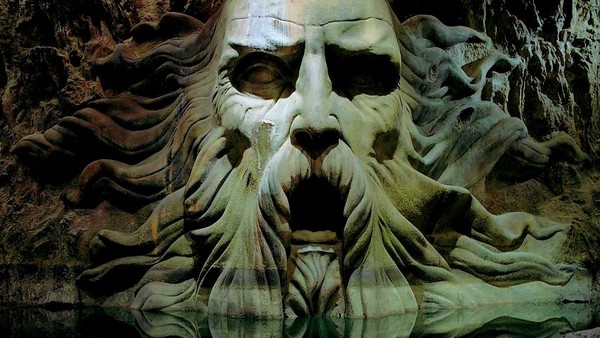12 Harry Potter Theories Better Than What We Got
4. Salazar Slytherin Was Never A Villain

Or, alternatively, maybe the fourth, most notorious Hogwarts founder was not the bad apple he was always painted as?
Look. maybe it's hard to not immediately think that someone who builds a Chamber Of Secrets with his own face as the centre-piece isn't a big, old-fashioned pantomime villain, but it's a far more acceptable line of thinking than the idea that the other founders tolerated a monster among them.
Think about it: Hogwarts was formed by a committee of four who opted into working with one another partly because of their brilliance but also because they each represented an aspect of personality that they wanted to bring out in new students. So, if you take that to its logical conclusion, the other founders admired the fact that Slytherin was a big old bigot. That makes no sense.
Far better is the theory that Slytherin's supposed evil was actually well-intentioned and ended up being twisted over the years by opportunistic extremists. There are two ways to look at him not being a bad guy: either he was the product of a society in which Muggles persecuted wizards (with things like the Salem Witch Trials) and wanted to keep half-bloods out to protect his own kind, or he heard a prophecy suggesting that one of his own descendants would grow up to be Voldemort.
His pride in his name and status could have meant he didn't share the prophecy, instead attempting to deal with it himself by bringing in a rule that no half-bloods could be taught there. What sounds like prejudice could have been preparation and security.
It's even possible that Slytherin had built the Chamber Of Secrets prior to that prophecy as a vanity project and something secret for his House. It's not like it's inherently a murder chamber and there's even the suggestion that he added the Baselisk to try and protect the world from his nefarious descendant.
Again, that all offers a better answer to why Slytherin was allowed to be a founder and teacher at Hogwarts despite his beliefs.